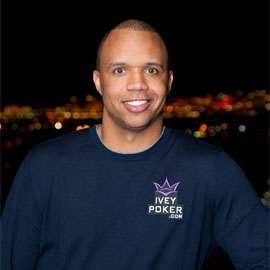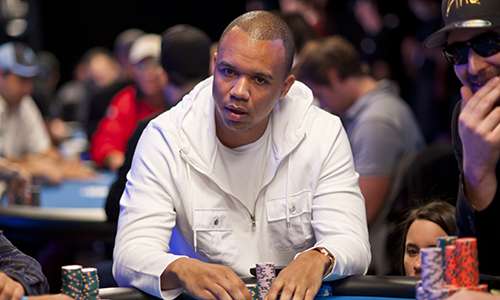Phil Ivey Launches Publicity Strike as Crockfords Case Rehearing Looms
British legal counsel for prominent American poker pro Phil Ivey have begun mounting a publicity offensive in favor of Ivey, who has been granted permission to appeal a 2014 UK High Court decision that went against him and in favor of London’s Crockfords Casino in a prominent “edge sorting” case involving the casino’s mini-baccarat games.
 In a press statement issued by the London legal firm of Archerfield Partners LLP and Ivey’s counsel, Richard Spearman QC, Ivey’s defense has confirmed that the appellate hearing in the £7.8 million case, in which Crockfords and parent company Genting Casinos refused to pay Ivey his winnings, will be conducted on December 10th.
In a press statement issued by the London legal firm of Archerfield Partners LLP and Ivey’s counsel, Richard Spearman QC, Ivey’s defense has confirmed that the appellate hearing in the £7.8 million case, in which Crockfords and parent company Genting Casinos refused to pay Ivey his winnings, will be conducted on December 10th.
Ivey had previously disclosed that he had been granted permission to appeal the Crockfords case decision, amid a deposition he provided in a similar case in the US involving New Jersey’s Borgata casino. Howeverm, the exact date of the hearing had not been set at the time of that March, 2015 deposition.
Whether or not Ivey’s advantage play constitutes “cheating” or is in fact illegal are among the main pounts of contention in the continuing Crockfords case, as well as that involving Ivey, his scheme collaborator Cheung Yin “Kelly” Sun, and the Borgata in New Jersey. Ivey and Sun employed a complex scheme designed to minimize suspicion while allowing Sun to identify minute print variations on the cards and have some of them rotated in a way to allow future “first card” identification in subsequent iterations of the shuffled shoe of cards being used.
Under British law, appeals of civil cases are not automatically granted upon petition. That next week’s hearing will be held at all is a victory of sorts for Ivey’s team, even though the appeal alone is certainly no guarantee of a reversal of the original decision. According to the press statement, the case’s Court of Appeal judge, Lord Justice Lewison, stated that Ivey’s grounds for appeal “raise an important question of law and have a real prospect of success.”
Ivey also issued a quote for the statement (or had one created in his name). “As I said at the time of the London verdict last October, it is not in my nature to cheat, which is why I was so bitterly disappointed by the judge’s decision a year ago, even though he said that I was a truthful witness and that he was sure that I didn’t believe that what I was doing was cheating,” said Ivey. “This wording from the Court of Appeal, that the grounds of our appeal raise an important question of law and have real prospects of success, is quite simply the best news I’ve had since I won the £7.8 million at Crockfords over three years ago in August 2012.”
Ivey also may have spoken with London’s Daily Mail, the tabloid news outlet which has featured the legal conflict between Ivey and Crockfords in several features. ‘It is not in my nature to cheat,” Ivey told the Mail, “which is why I was so bitterly disappointed by the judge’s decision a year ago, even though he said I was a truthful witness.”
“When you are a professional gambler you are always looking for ways to gain an advantage over the casino,” added Ivey. “It’s their job to prevent me from having any advantage. Sometimes I come out on top, sometimes they do.” Indeed, the beliefs of an “advantage” player as illustrated and attested to by Ivey in his March 2015 Borgata deposition speak clearly to this fine line of differentiation, and will be the subject of an immediate follow-up piece.
Ivey’s British counsel has also been quite proactive in attempting to whitewash the Internet of negative publicity regarding their client, to the extreme of issuing complaints about stories which included both the phrases “Phil Ivey” and “cheater” or “cheating”. Such efforts appear to have been largely abandoned after New Jersey’s Borgata Hotel Casino & Spa filed its own case against Ivey and Sun, and the C-word was featured in hundreds, if not thousands, of reports appearing in major corporate news outlets.




















COMMENTS